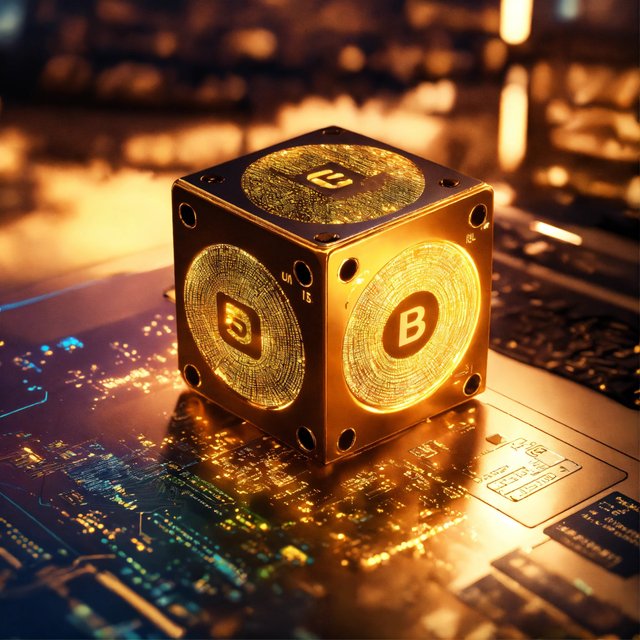
Blockchain technology is a revolutionary concept that has disrupted traditional ways of managing data and transactions. At its core, a blockchain is a decentralized and distributed ledger that records transactions across multiple computers in a secure and transparent manner.
How Does Blockchain Work?
Imagine a digital ledger that is duplicated and distributed across the entire network of computer systems on the blockchain. Each block in the chain contains a number of transactions, and every time a new transaction occurs on the blockchain, a record of that transaction is added to every participant's ledger.
Once a block reaches its maximum capacity, a new block is formed, linked to the previous one, and added to the chain in a linear, chronological order. This creates a chain of blocks, hence the term "blockchain."
Decentralization and Security:
One of the key features of blockchain is its decentralization. Unlike traditional databases that are owned and maintained by a single entity, blockchain is distributed across a network of computers (nodes). This decentralization ensures that no single entity has control over the entire blockchain, making it resistant to manipulation and fraud.
Moreover, the information stored on a blockchain is secured using advanced cryptographic techniques. Each block contains a unique code (hash) and references the previous block's hash. If someone attempts to alter the information in a block, it would require changing the information in all subsequent blocks, which is practically impossible due to the decentralized nature and cryptographic security.
Transparency and Immutability:
Blockchain provides transparency as every participant in the network has access to the entire database and its complete history. This transparency, coupled with the immutability of the records, enhances trust among participants. Once a block is added to the chain, it cannot be altered or deleted, ensuring a tamper-proof record of all transactions.
Use Cases of Blockchain:
Blockchain technology goes beyond cryptocurrencies. It is being explored and implemented in various industries, including finance, supply chain, healthcare, and more. Smart contracts, which are self-executing contracts with the terms of the agreement directly written into code, are another application gaining popularity.
In conclusion, blockchain technology is a powerful force reshaping the way we think about and interact with data and transactions. Its decentralized, secure, and transparent nature makes it a revolutionary tool with far-reaching implications for various sectors, promising a future where trust and efficiency are at the forefront of technological advancements.